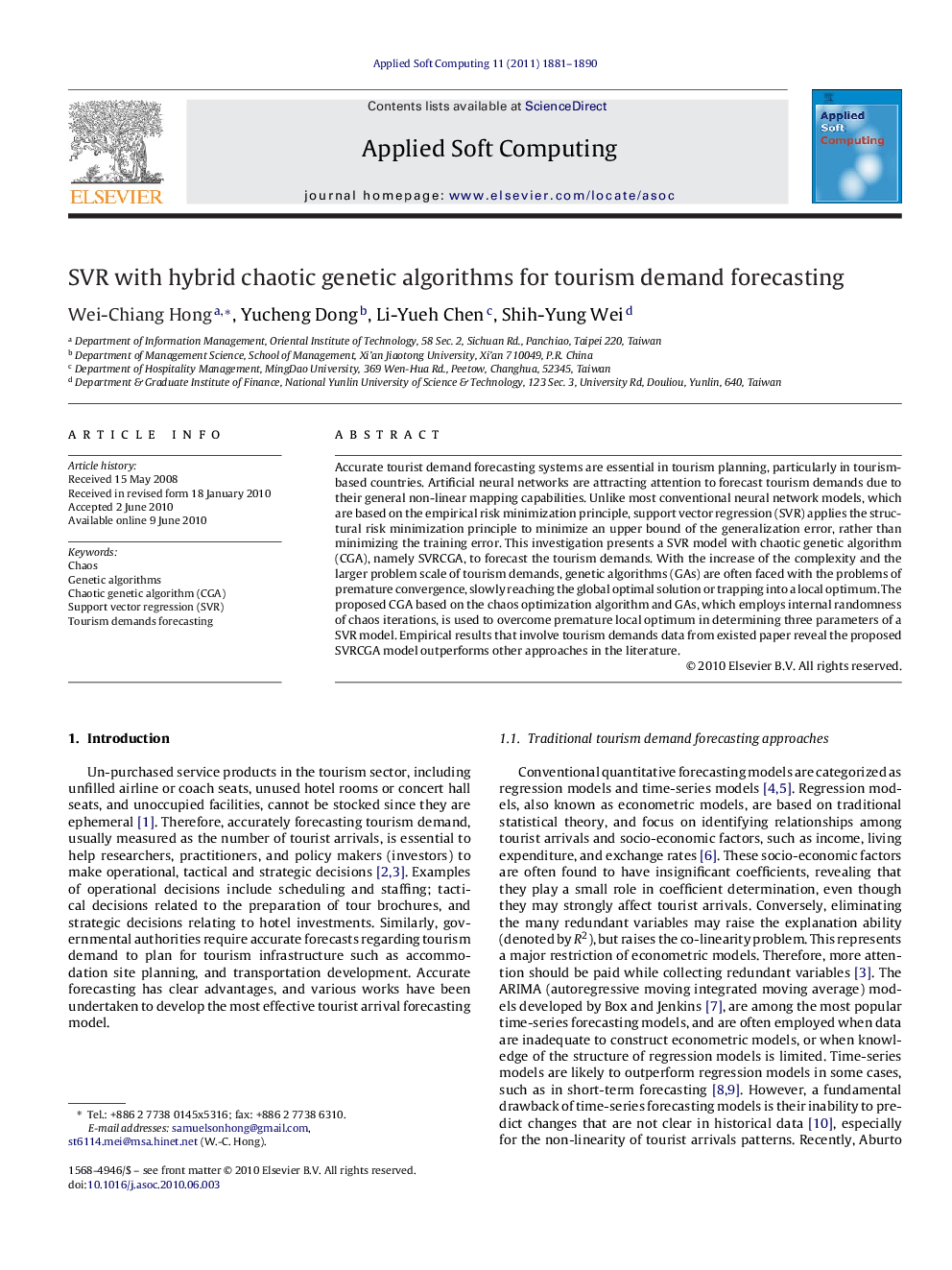| Article ID | Journal | Published Year | Pages | File Type |
|---|---|---|---|---|
| 497012 | Applied Soft Computing | 2011 | 10 Pages |
Accurate tourist demand forecasting systems are essential in tourism planning, particularly in tourism-based countries. Artificial neural networks are attracting attention to forecast tourism demands due to their general non-linear mapping capabilities. Unlike most conventional neural network models, which are based on the empirical risk minimization principle, support vector regression (SVR) applies the structural risk minimization principle to minimize an upper bound of the generalization error, rather than minimizing the training error. This investigation presents a SVR model with chaotic genetic algorithm (CGA), namely SVRCGA, to forecast the tourism demands. With the increase of the complexity and the larger problem scale of tourism demands, genetic algorithms (GAs) are often faced with the problems of premature convergence, slowly reaching the global optimal solution or trapping into a local optimum. The proposed CGA based on the chaos optimization algorithm and GAs, which employs internal randomness of chaos iterations, is used to overcome premature local optimum in determining three parameters of a SVR model. Empirical results that involve tourism demands data from existed paper reveal the proposed SVRCGA model outperforms other approaches in the literature.
